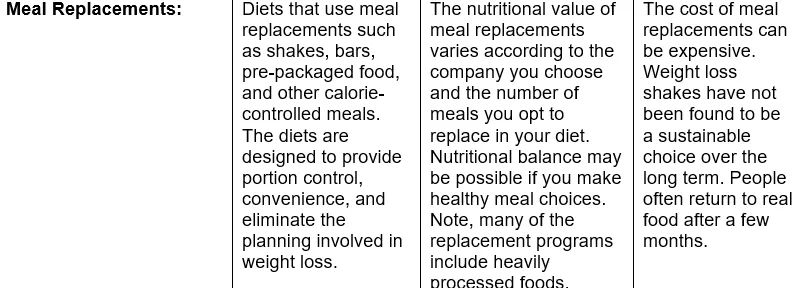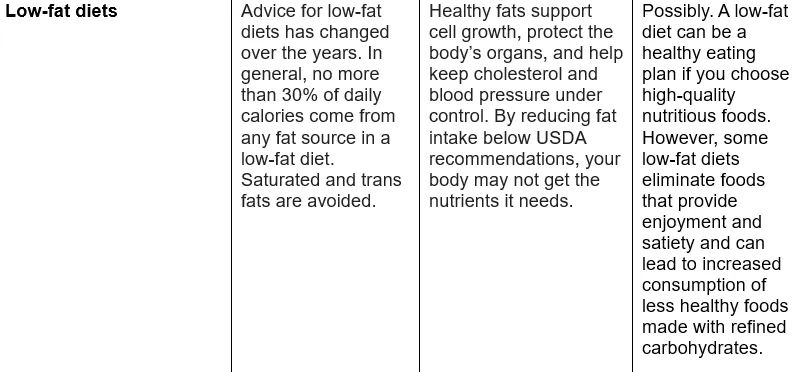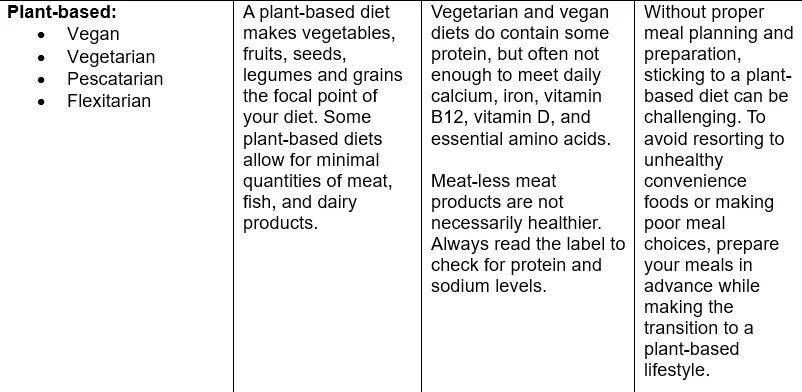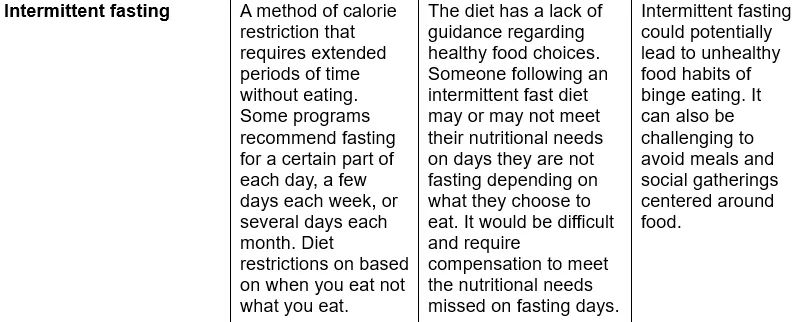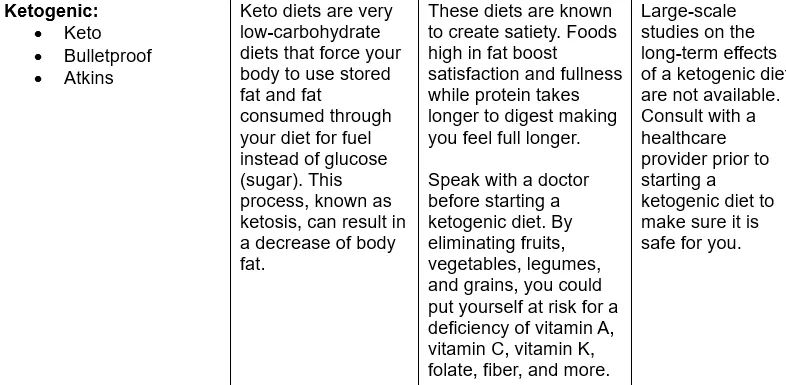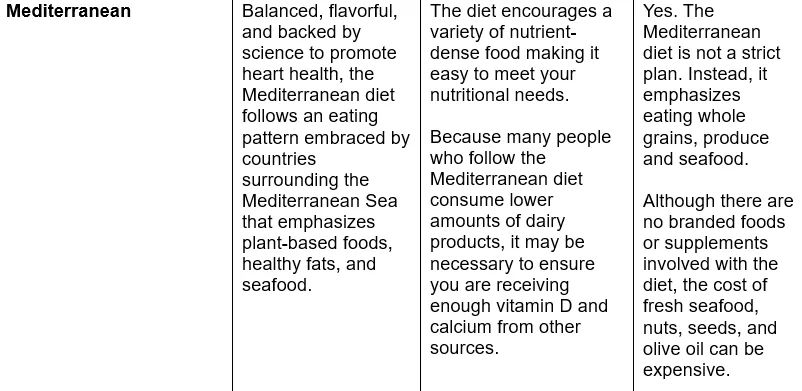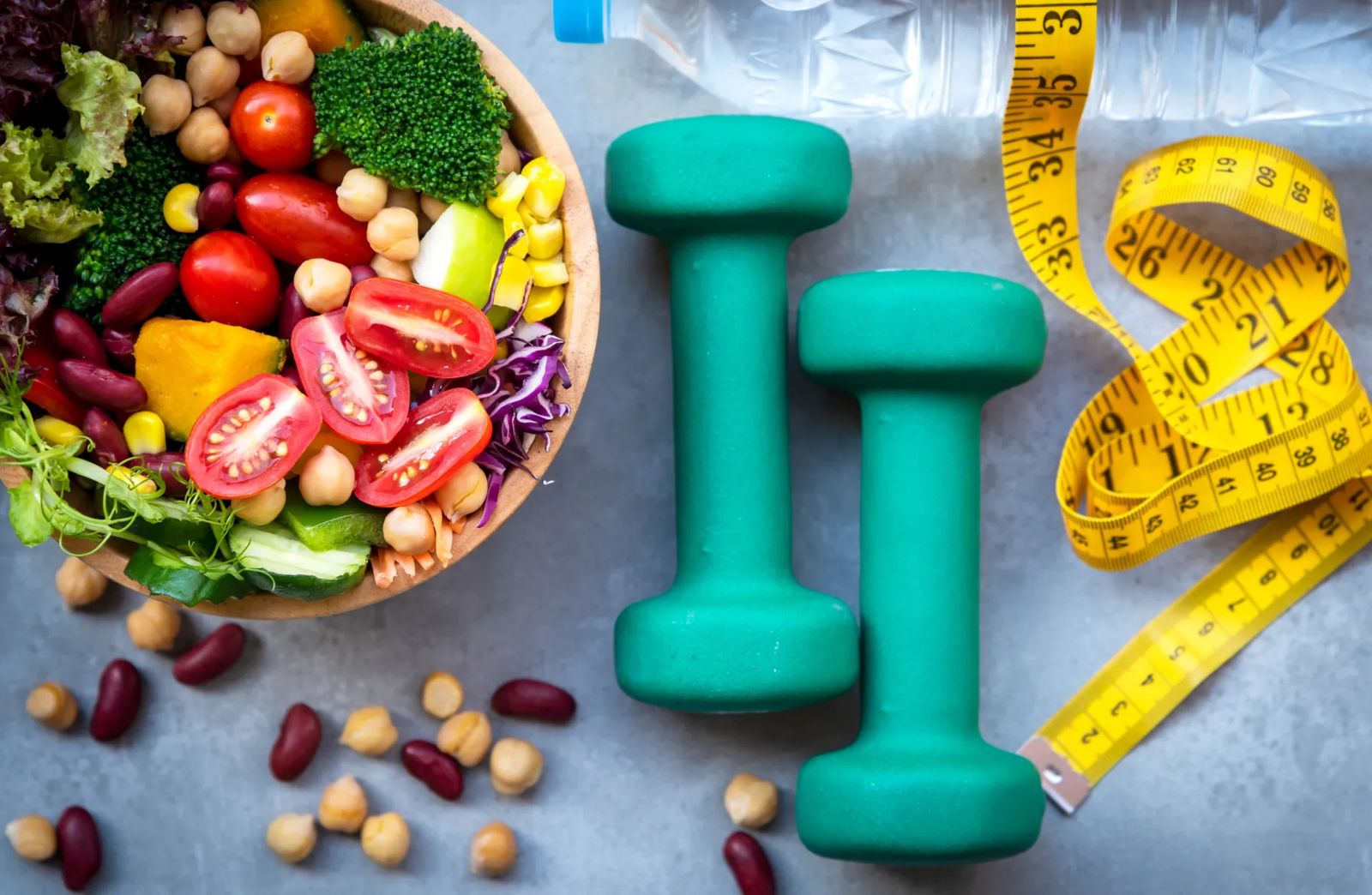
Weighing in on Healthier Habits
How to pick the eating style that's right for you in 2024
St. Vincent Regional Hospital
If you type ‘diet book’ into an online search bar, your query will yield thousands of results. Whether you want to lose weight, boost your energy, or just feel better, the options to optimize your nutrition are endless. If you find it all confusing and contradictory, you are not alone. We asked Anissa Avanesyan, a registered dietitian at St. Vincent Regional Hospital, to weigh in on which diets really work.
DITCH THE WORD DIET
Avanesyan’s first piece of advice may surprise you. She recommends replacing the word diet in your vocabulary with eating style. Avanesyan explains, “The word diet has such a negative connotation and diets themselves are usually not sustainable."
Lasting change comes from lifestyle modifications aimed at living and feeling healthier. Although a slimmer waistline may be what motivates you, Avanesyan says the focus shouldn’t be to lose 1-2 pounds per week, but to take the steps that can result in your body actually feeling better and improving your overall health.
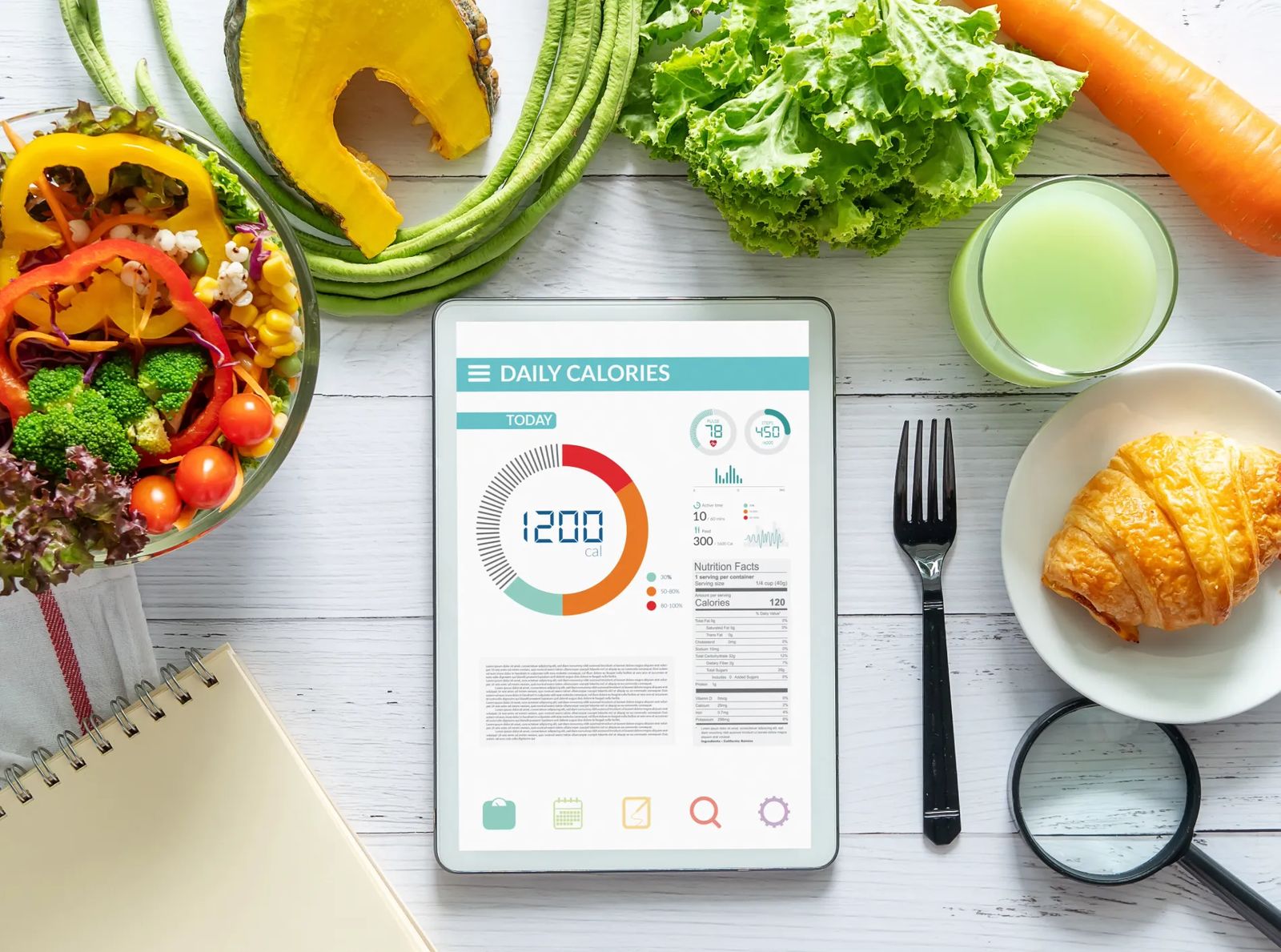
PUT YOURSELF ON A BUDGET
View your nutrition choices like you do money. For example, healthy adults should only have 2,300 milligrams of salt (sodium) a day. That’s just a single teaspoon of table salt. Think of those 2,300 milligrams as a $2,300 budget to spend for the day. The goal, whether it be salt/sodium, sugar, or another nutrient, is to know how much you have in your budget (how much you have to spend) so you save where you can and spend where you want.
"If you know you are planning to enjoy pasta at night make sure you balance out your meals during the day getting enough protein, fruits, and vegetables.” Avanesyan continues, “I think a lot of diets have good parts to them, the Mediterranean diet is one of the best, but it should be a guideline, rather than a rule book.”
3 QUESTIONS TO HELP YOU MAKE BETTER DECISIONS & LIFELONG CHANGES:
- Are you making a mindful choice?
- Are you really hungry or are you eating for another reason (emotions/boredom)?
- How will you feel afterward/is it worth it?
DIETITIAN-APPROVED ADVICE FOR BETTER HEALTH
1. Cut back on added sugar. You probably know sugar is in your favorite drink, but did you know it’s also hiding in yogurt, granola bars, almond milk, and more? Labels can be tricky to read. Sugar is always listed in grams and four grams equals one teaspoon. Added sugar should be limited to 30 grams a day, that’s 7.5 teaspoons.
2. Fiber, eat more in 2024. Fiber helps you feel full, helps regulate your bowels, controls blood sugars, and helps lower cholesterol. The average person needs 25-30 grams a day. To get your fill of fiber, Avanesyan recommends filling half your plate with veggies and fruits and reading the nutrition label, if it is available. Try new recipes that will help you incorporate legumes (like lentils, chickpeas, and beans) as well as whole grains (such as quinoa, farro, oats, and brown rice).
3. Drink water. Adequate hydration aids in digestion, increases energy and brain function, and will help you maximize your physical performance. The average person needs eight cups or 64 oz of calorie-free, caffeine-free liquids daily such as water, flavored sparkling water, decaf tea, and coffee. Aim to drink a glass of water as soon as you wake, carry a bottle with you throughout the day and refill as needed, and drink water with your meals.
4. Get moving. Exercise improves mood and brain health, strengthens bones, and muscles, and reduces your risk of disease. Aim to get at least 150 minutes (about 2 and a half hours) per week of moderate-intensity aerobic activity (like brisk walking, dancing, hiking, or biking) or 75 minutes per week of vigorous aerobic activity (like running, swimming, or playing basketball), or a combination of both preferably spread throughout the week.
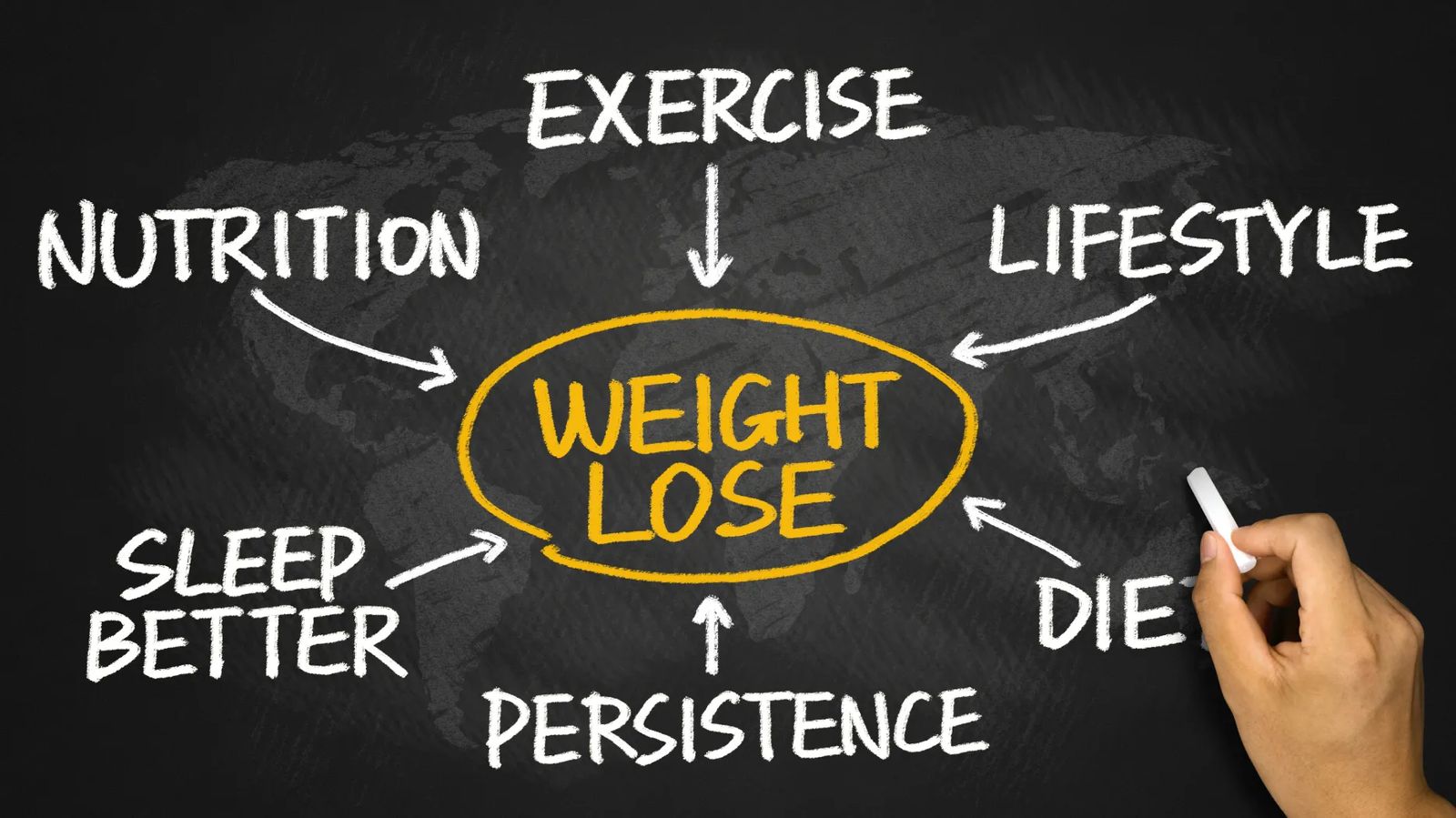
SETTING A NEW YEAR’S RESOLUTION
There is no one weight loss plan or diet for everyone. Talk with your healthcare provider about what might work best for you before starting a diet or drastically changing your eating style. Unless a therapeutic diet has been recommended by your physician or dietitian, Avanesyan generally does not support any particular diet. However, recognizing that many people make “going on a diet” a common New Year’s resolution, here is a brief breakdown of some of the most popular diets, so you can make a more informed decision.

